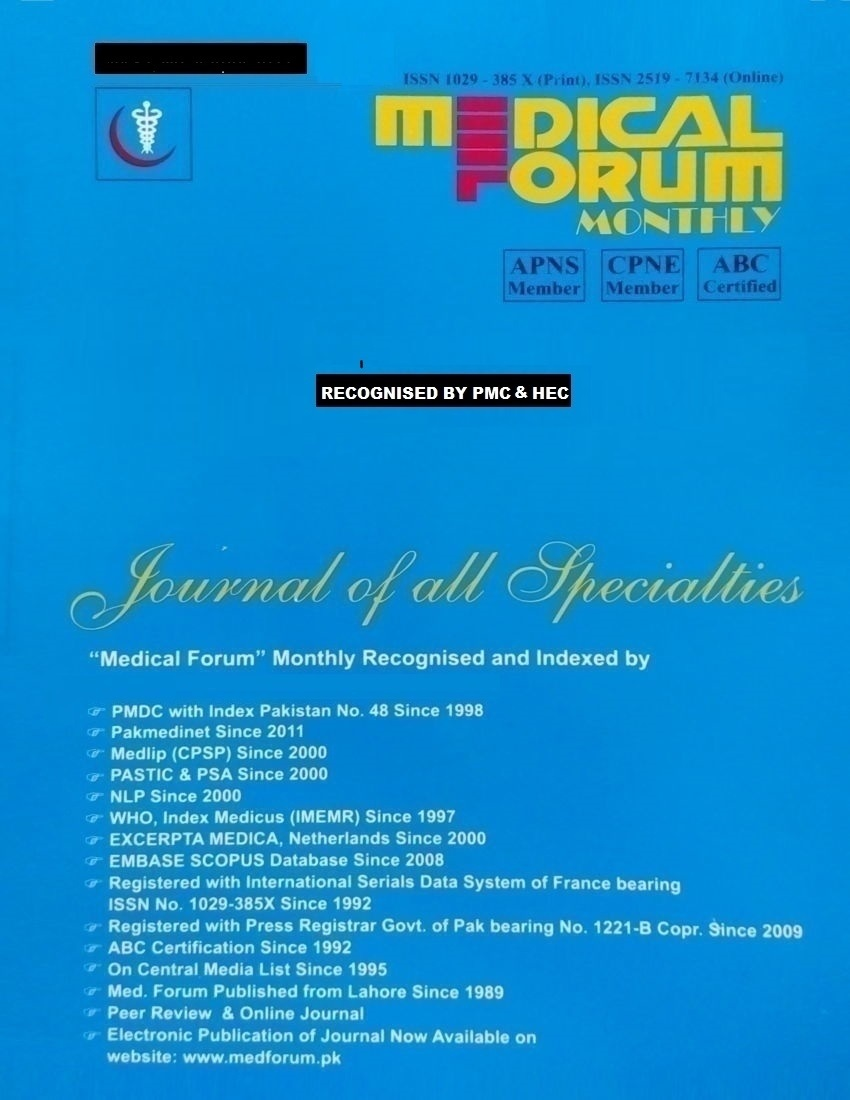
3.Levels of Serum Adiponectin, Glucose and Insulin in Asymptomatic Offspring of Patients with T2DM
Muhammad Jawad Anwar, Muhammad Ejaz Butt, Muhammad Shamim, Rabiya Jameel, Ali Afzal and Muhammad Waseem
ABSTRACT
Objective: To measure and compare the Adiponectin, glucose and Insulin results of healthy offspring of patients with type 2 diabetes mellitus with healthy offspring of non-diabetics.
Study Design: Case control study Place and
Duration of Study: This study was conducted at the Department of Pathology PGMI, Lahore and Diagnostic Laboratory of UVAS, Lahore for nine months.
Materials and Methods: Healthy non-diabetic subjects which were offspring of previously diagnosed type 2 diabetics, visiting LGH Lahore for treatment, under 30 years female and male, having normal fasting blood glucose values with no diabetic symptoms were included.
Results: In 100 subjects, Insulin and adiponectin were estimated for this ELISA method used, and GOD-PAP method for glucos. Control group had Mean ± SD of Adiponectin 5.20±2.23 and study group had 4.38 ±1.38 with insignificant difference of P value 0.14. Insulin in control group had Mean ± SD 16.80 ± 4.09 and study group had 18.40 ± 13.32 having insignificant difference with P value 0.081. In control group, glucose Mean ± SD had 80.75±14.21 mg/dl value and 80.92±13.38 mg/dl in study group with insignificant contrast with 0.098 P value.
Conclusion: Adiponectin, glucose and Insulin measured values were normal, having no notable corelation direct or inverse.
Key Words: Type 2 diabetes mellitus (T2DM), Adiponectin ,Insulin, Enzyme linked immunosorbent assay (ELISA), Glucose oxidase para amino phenazone (GOD PAP).
Citation of articles: Anwar MJ, Butt ME, Shamim M, Jameel R, Afzal A, Waseem M. Levels of Serum Adiponectin, Glucose and Insulin in Asymptomatic Offspring of Patients with T2DM. Med Forum 2019;30(4):11-14.
